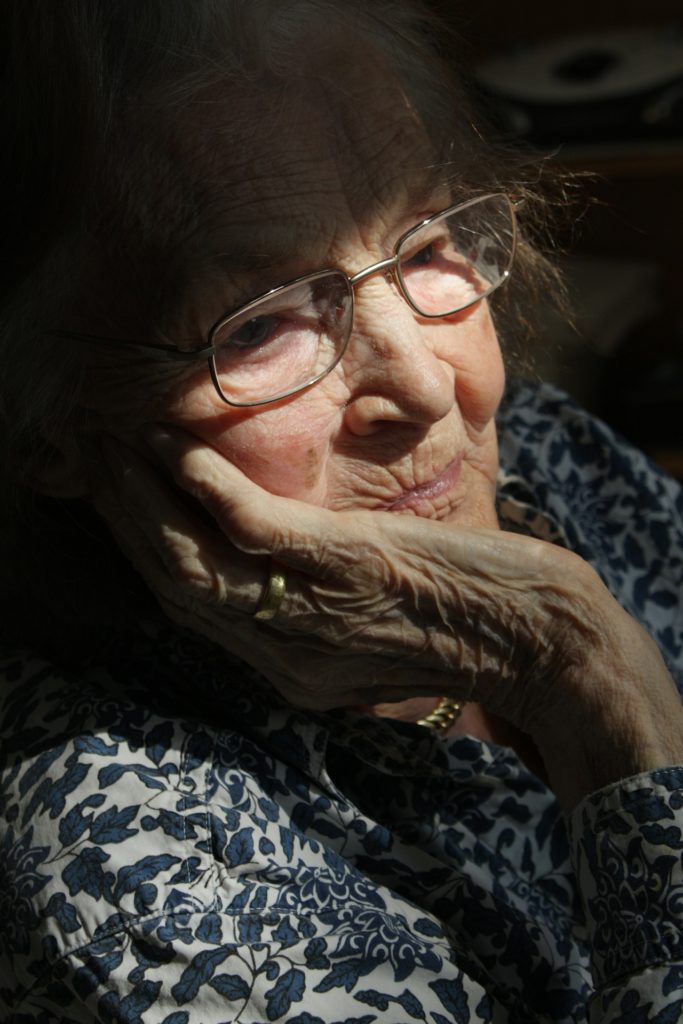I set up the camera and let it roll. In her kitchen. In rural Iowa. August, 1993.
Over the next two hours my eighty-four-year-old friend, without hesitation, without probing, without concern, spoke…about her itinerant life and the struggles of share-cropping, about the infidelities of her husband, his alcoholism, their divorce—and their remarriage the following year, about her love and intense pride for her children. Over the next two hours she set down her burden. A quiet catharsis.
Never had she felt heard. Never had she been able to share the concerns and frustrations of her life. Her children would never know her anger, her pain, her sense of aloneness and loneliness. I had met her but a few days before. Yet she felt I knew her better than anyone. Upon her deathbed she requested I perform her funeral.
I have never shared her video. I have never told her children anything but that she loved them.
There are myriad reasons someone might relate her history. Unburdening. Validation. Resolution. Passing on one’s legacy. Regardless, the stories are important.
Our stories are both who we are and who we perceive ourselves to be. They say we lived, we mattered, our lives were valid. Valid regardless how or if those stories are shared. They matter. They were offered. Important? Absolutely.
Life for many is incomplete without having told their stories. People often feel a need to document their lives when approaching the end-of-life. An opportunity to recount one’s personal story may be the difference between a good death and an unsatisfactory death, the difference between internal conflict and an unresolved life and a sense of fulfillment, completion, resolution, peace.*
Personal histories are more than recounting chronologies and events, they are the means for reevaluating one’s life, placing it in context, giving it meaning through the conveying of emotions and the personal responses to those things that happened to us. They are the opportunity to reflect, reclaim, even re-identify, oneself in the context of today.
Blanche identified herself as “always a happy person,” a seemingly curious self-description given her life story yet understandable in the context of the love she had for her children, and the same love reflected back to her by them. She died in the hospital a few months after our interview surrounded by those same daughters holding her, loving her, validating the happiness she felt through them.
I did perform her funeral.
*(Recorded histories can often be a comforting, reconciling element for loved ones, when meant to be shared, as well. More on this in additional materials.)

